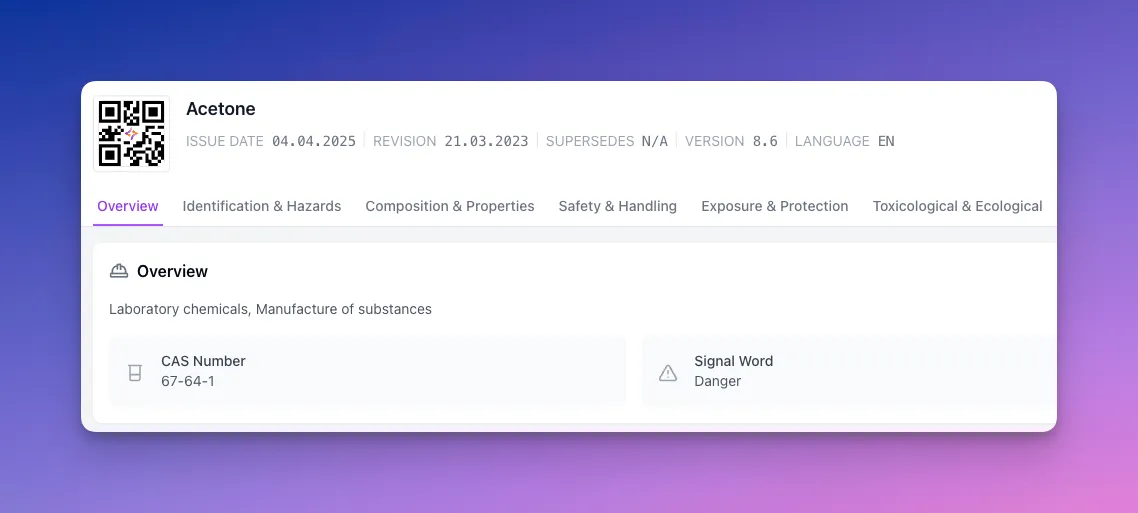
In a world where sustainable development and circular economy principles are becoming essential business objectives, the European Union has introduced Digital Product Passports (DPPs) through Regulation No. 2024/1781 as a cornerstone of its sustainability strategy. This initiative will fundamentally transform how chemical products are documented, tracked, and managed throughout their lifecycle.
For chemical manufacturers and distributors, DPPs represent both a compliance requirement and a strategic opportunity to demonstrate sustainability leadership while improving supply chain transparency.
The DPP is designed to facilitate the transition to a circular economy by improving material and energy efficiency, extending product lifespans, and ensuring optimal waste management. Regulation 2024/1781 establishes the framework for setting eco-design requirements for sustainable products available in the EU market.
Key product groups prioritized for DPP implementation include:
The implementation timeline shows detailed requirements being introduced after 2027, with full DPP deployment expected by 2030. However, manufacturers in priority sectors should begin preparation immediately.
Each Digital Product Passport must include:
All information must follow ISO/IEC 15459:2015 standards to ensure global interoperability while maintaining the security of sensitive data.
A primary concern for chemical companies implementing DPPs is protecting trade secrets while meeting transparency requirements. The regulation acknowledges this challenge, with encryption technologies enabling companies to substantiate environmental claims without revealing sensitive formulation details.

As a specialized SDS management platform, NextSDS has been at the forefront of digital chemical documentation since our founding. Our comprehensive support for DPP implementation includes:
Our platform extracts every data element from existing Safety Data Sheets, creating a powerful foundation for populating Digital Product Passports without manual re-entry.
Our team translates complex DPP regulations into practical implementation guidance built on our SDS management foundation.
Our technology seamlessly connects SDS data with DPP requirements, ensuring consistency throughout your product information ecosystem.
We implement advanced security protocols that protect sensitive formulation details while meeting transparency requirements.
The Digital Product Passport will soon become an integral part of the chemical industry. By partnering with NextSDS now, you can position your company at the forefront of this sustainable transformation, turning regulatory compliance into competitive advantage.
We are intensively developing DPP capabilities that complement existing documentation like safety data sheets (SDS), technical data sheets (TDS), labels, and safe work instructions. With NextSDS, you’ll be able to create, update, and manage Digital Product Passports seamlessly within your existing workflow.
Contact NextSDS today to learn how our platform can help you prepare for the Digital Product Passport revolution.